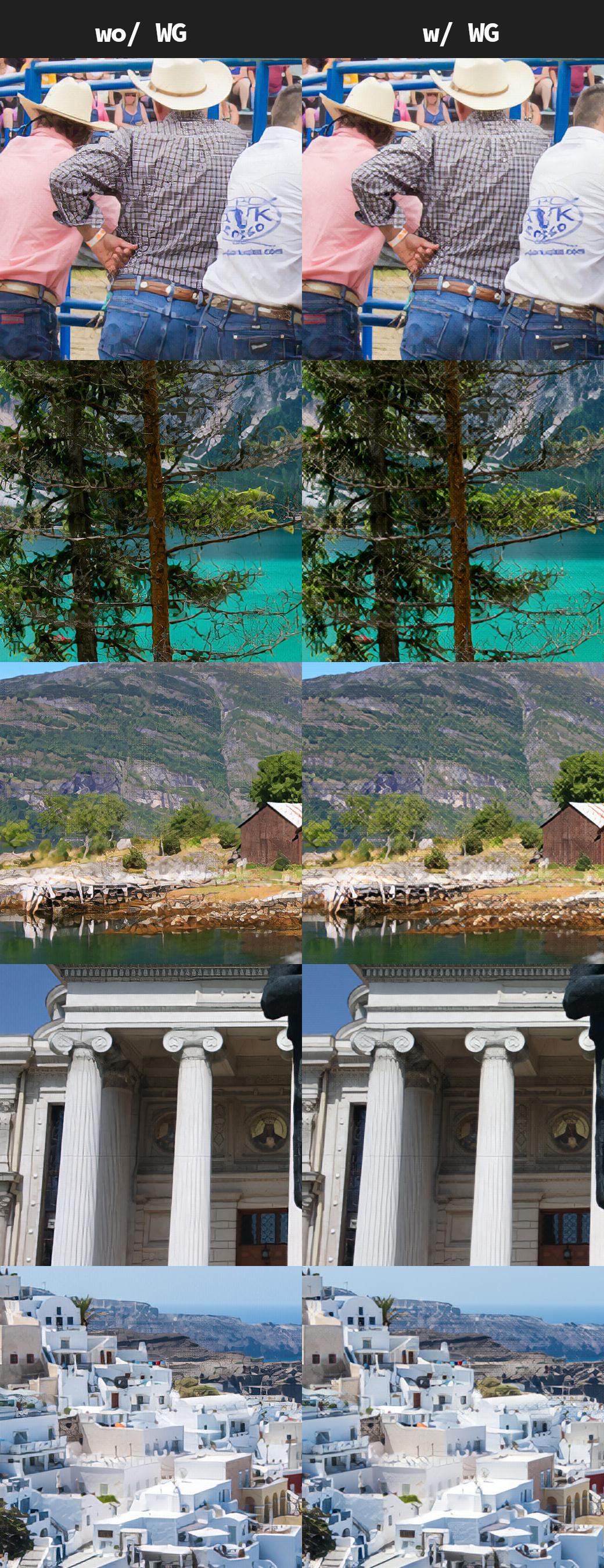In CVPR 2024
Training Generative Image Super-Resolution Models by Wavelet-Domain Losses Enables Better Control of Artifacts
Paper Link | Supplementary Material
Cansu Korkmaz, A. Murat Tekalp, Zafer Dogan
SR 4X Results on DIV2K Validation Set
- clone this repository
git clone https://github.com/mandalinadagi/WGSR
cd WGSR
- Install dependencies. (Python >= 3.7 + CUDA)
- Require pytorch=1.9.1: official instructions
- Install other requirements:
pip install numpy opencv-python lmdb tensorboardX
Download pretrained models from Google Drive and place them in test_image/pretrained_models.
If you want to test our model with a dataset folder containing low-resolution images:
cd test_image
python test.py ./pretrained_models/WGSR_2lvl_G.pth <path to dataset folder>
If you want to test our model with single low-resolution image:
First place your low-resolution images in test_image/LR folder, then
cd test_image
python test.py ./pretrained_models/WGSR_2lvl_G.pth
The super-resolution results are in test_image/<model_name>/results folder.
- The WGSR model trained by 1 level stationary wavelet coefficients (WGSR_1lvl_G.pth) is also provided.
- Prepare the datasets which can be downloaded from Google Drive.
- Prepare the PSNR-oriented pretrained RRDB model.
- Modify the configuration file
codes/options/train/train_WGSR.json. (dataroot_HR, dataroot_LR, pretrain_model_G) - Run the command
python train.py -opt /options/train/train_WGSR.json.
Please note that when 2 level stationary wavelet is used, input channel for discriminator model must be set to 6, (options/train/train_WGSR.json line 50 in_nc=6)
If you find the code helpful in your resarch or work, please cite the following papers.
@inproceedings{korkmaz2024training,
title={Training Transformer Models by Wavelet Losses Improves Quantitative and Visual Performance in Single Image Super-Resolution},
author={Korkmaz, Cansu and Tekalp, A. Murat and Dogan, Zafer},
booktitle={Proceedings of the IEEE/CVF Conference on Computer Vision and Pattern Recognition (CVPR)},
month={June},
year={2024}
}
Thanks for their great work, our wavelet-domain loss function is also implemented by neosr, so please feel free to utilize our loss function with different architectures. Cheers!
Here are several visual results from neosr, showing the effectiveness of wavelet-domain loss function.

If you have any questions please email at ckorkmaz14@ku.edu.tr
Our code is based on ESRGAN+. Thanks to their great work.


